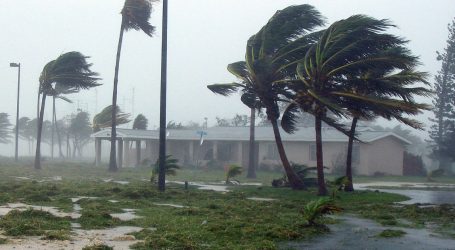PolitickerOne: Here’s What Obama’s Plan To Help Ex-Inmates Will Actually Accomplish; ALSO CBC Tackles Widening Wealth Gap
NewsOne’s PolitickerOne blog tackles some of the most important topics in politics: Election 2016, moves by the Obama administration, voting rights, lawmaking, and the way that elected officials represent our communities. Three times a week, we will go beyond the mainstream media’s “pack” coverage of politics to highlight the underreported aspects of how politics and policy affect you and the people you care about. In between, follow the conversation on Twitter at #PolitickerOne.
President Barack Obama on Monday continued to uphold his vow to overhaul the nation’s floundering criminal justice system, which has come under fire by civil rights advocates for working against the poor and people of color.
Obama announced the sweeping overhaul in Newark, New Jersey, where he visited a drug addiction treatment center. The plan calls for the federal government to provide ex-felons with access to education grants, job training, and permanent supportive public housing, according to the White House.
The announcement comes as the Department of Justice is in the midst of releasing about 6,000 nonviolent inmates from federal prison as part of an effort to ease overcrowding and overturn harsh sentencing guidelines that were meted out to drug dealers and users in the 1980s and 1990s.
They are part of the first wave of an estimated 46,000 drug offenders in federal prison who qualify for early release out of about 100,000.
Under the plan, the Department of Education will award up to $8 million in federal grants over three years to help support educational achievement for ex-inmates. The Department of Housing and Urban Development is slated to release guidelines to help Public Housing Authorities and owners of HUD-assisted housing determine how best to use arrest records to make decisions about who can live in federally subsidized housing.
The president has also instructed the Office of Personnel Management to relax its rules and postpone inquiries into criminal history until later in the hiring process. Obama has been vocal about his efforts to push Congress to approve bipartisan legislation that would “ban the box” for federal hiring and hiring by federal contractors.
“Each year, more than 600,000 individuals are released from state and federal prisons,” reads the White House fact sheet. “Advancing policies and programs that enable these men and women to put their lives back on track and earn their second chance promotes not only justice and fairness, but also public safety. That is why this Administration has taken a series of concrete actions to reduce the challenges and barriers that the formerly incarcerated confront, including through the work of the Federal Interagency Reentry Council, a cabinet-level working group to support the federal government’s efforts to promote public safety and economic opportunity through purposeful cross-agency coordination and collaboration.”
In July, Obama became the first sitting president to visit a federal prison. And many of the announcements made today stem from the president’s My Brother’s Keeper Task Force, whose goal is to ensure that all young people reach their full potential.
“I believe we can disrupt the pipeline from underfunded schools to overcrowded jails,” the president said Saturday during his weekly address to the nation. “I believe we can address the disparities in the application of criminal justice, from arrest rates to sentencing to incarceration. And I believe we can help those who have served their time and earned a second chance get the support they need to become productive members of society.”
Last week, the nation witnessed a 16-year-old girl being brutally attacked in a viral video by a school resource officer at Spring Valley High School. Had the video not been recorded, she would have likely been on her way to joining the pipeline from school to prison. We, too, hope that the destructive pipeline from “underfunded schools to overcrowded jails” can also be disrupted.
———————————————————————————————-
CBC Tackles Widening Wealth Gap
The Congressional Black Caucus on Friday held a public forum in New York City to address persistent disparities between Blacks and Whites in employment, wealth, housing, and education.
In New York City, a new report released last month shows that the situation is dire. African-Americans face an unemployment rate that is over four percentage points higher than the highest unemployment rate experienced by Whites (7.9 percent) during the recent recession, the report says. And the median income for African-Americans is $41,000—nearly half the median income of White households ($80,200).
More than 1.6 million working-age African-Americans (16 years and over) live in New York City, making up a quarter of the city’s working-age population.
“While the American Dream of prosperity, security and opportunity is still the standard by which most people measure success, for today’s working families, especially of color, that Dream seems impossibly out of reach,” U.S. Rep. Rangel (D-NY) said in a statement. “I thank the CBC and JEC [U.S. Congress Joint Economic Committee] for coming to Harlem to discuss how steep the ladder is and how far apart the rungs are, so we can work on policies that will help tackle the rising inequalities threatening the well-being and future of our communities.”
Congressman G. K. Butterfield of North Carolina hosted the event that was attended by Carolyn B. Maloney (D-NY) and Ranking Democrats on the U.S. Congress Joint Economic Committee (JEC); Yvette D. Clarke (D-NY); and Hakeem Jeffries (D-NY).
“From persistent poverty, perennially high unemployment, and lower wages, in addition to inequitable application of justice and treatment under the law – African American communities around the country are facing critical hardships,” Butterfield said in the statement. “This forum was designed to help us take a closer look at some of the most pressing issues facing African Americans in New York and around the country. It allows us to highlight the incredible work that lies ahead as we identify ways to repair the damage stemming from a history of racial division so that all Americans can enjoy equality, fairness and opportunity.”
Friday’s forum at Harlem Hospital was the second in a series of discussions planned around a JEC report released earlier this year. Read the complete report about New York here.
PHOTO CREDIT: Getty
SEE ALSO:
Don’t Miss Our Hottest Stories! Get The NewsOne Flip App for iPhone: Flip, Skip — Or Send Us a Tip!




